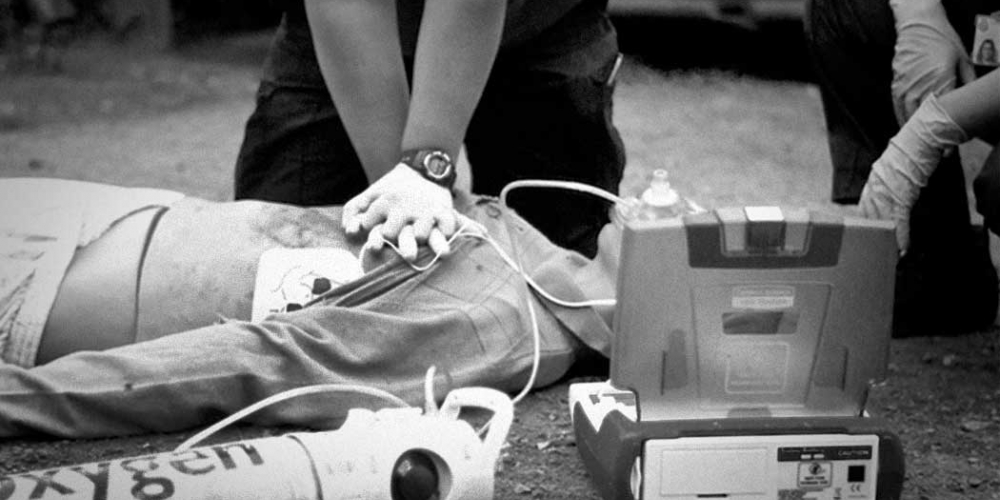

Cardiac First Responder Advanced Course (CFR-A)
£95.00 p/p
5 hours (Approx.)
A cardiac first responder Advanced level is a person trained in cardiopulmonary resuscitation and in the use of an automated external defibrillator (AED) who can respond to someone who has suddenly collapsed.
Course Details
In addition to the competencies taught at CFR Community level, the Advanced level course teaches the airway management: suctioning, use of an oropharyngeal airway (OPA), supraglottic airway (SGA) uncuffed devices, bag valve mask (BVM), pulse checks, roles in team resuscitation and oxygen administration. If there is a concern about maintaining competency in all the required CFR Advanced level skills (in particular BVM use), Council recommends that an individual consider seriously that CFR Community level is more appropriate.
New in 2016 is team resuscitation. It’s recommended that CFR responder/community respondergroups learn more about this approach to improve the efficacy of cardiopulmonary resuscitation (basic and advanced life support) when interacting with healthcare professionals.
Learning Outcomes for Cardiac First Response – Advanced Level
The CFR Advanced standard is the expected competency of the student upon completion of a recognised course. A person, at the end of a recognised CFR Advanced course, will be able to:
- Recognise the signs of a life threatening emergency.
- Respond in an effective, safe and appropriate manner, to a life threatening emergency, utilising basic life support skills including airway and ventilation management.
- Retrieve and appropriately use, if required, an automated external defibrillator during a cardiac arrest.
- Report and Record their actions and interventions appropriately and handover to emergency medical services.
Successful completion of the CFR Advanced standard leads to the award of the joint recognised institution and PHECC award. This award ensures that the responder has fulfilled the educational and training requirements as prescribed by PHECC, thereby possessing the knowledge, skills and professionalism in line with the expectations of the public and the profession. It is recommended that the cardiac first responder ensure their ongoing competency by participation in annual refresher training and certification every two years.
Candidate Criteria
Entry to the CFR Advanced level is aimed at persons who may be working in the emergency medical services, fire and rescue services or a healthcare professional working in healthcare facilities or in the community. In addition to responding to patients in
Course Format
- Guideline lecture
- Discussions
- Skill stations
- Scenarios
- Working in teams
- Small group work
- Equipment familiarisation
- Competency-based assessment
- Blended learning